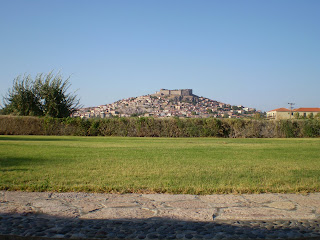


I travelled to Lesbos last week for the 7th Libraries Without Walls conference. I gave a paper about BRUM on the practicalities of creating RLOs for information literacy covering the technical and design aspects, liaison and issues for the future. Keynote speaker Christine Borgman asked a pertinent question about sustainability, which I hadn't addressed in the talk. Ann-Marie and I did look at the issues surrounding sustainability including using repositories such as Jorum and collaborating further with external colleagues on exploring ownership of RLOs and reusability of learning objects with obsolete software etc.
Later in the conference I got talking to Susan Eales who used to work at JISC and helped to set up Jorum and we had a discussion about the copyright issues attached to learning objects being put back in to Jorum once they've been re-purposed.
As part of our recommendations from the project we will be following up these issues with external colleagues such as JISC and other RLO creators such as Rebecca Mogg at Cardiff.
All of the other papers at the conference were really interesting and varied and after I've got through autumn term and seeing hundreds of new medical students I'll write up a conference report and put any relevant RLO-related points on the blog.
In the mean time enjoy some photos from Lesbos. I've yet to ask conference delegates permissions for their images so they're photos of the scenery.





